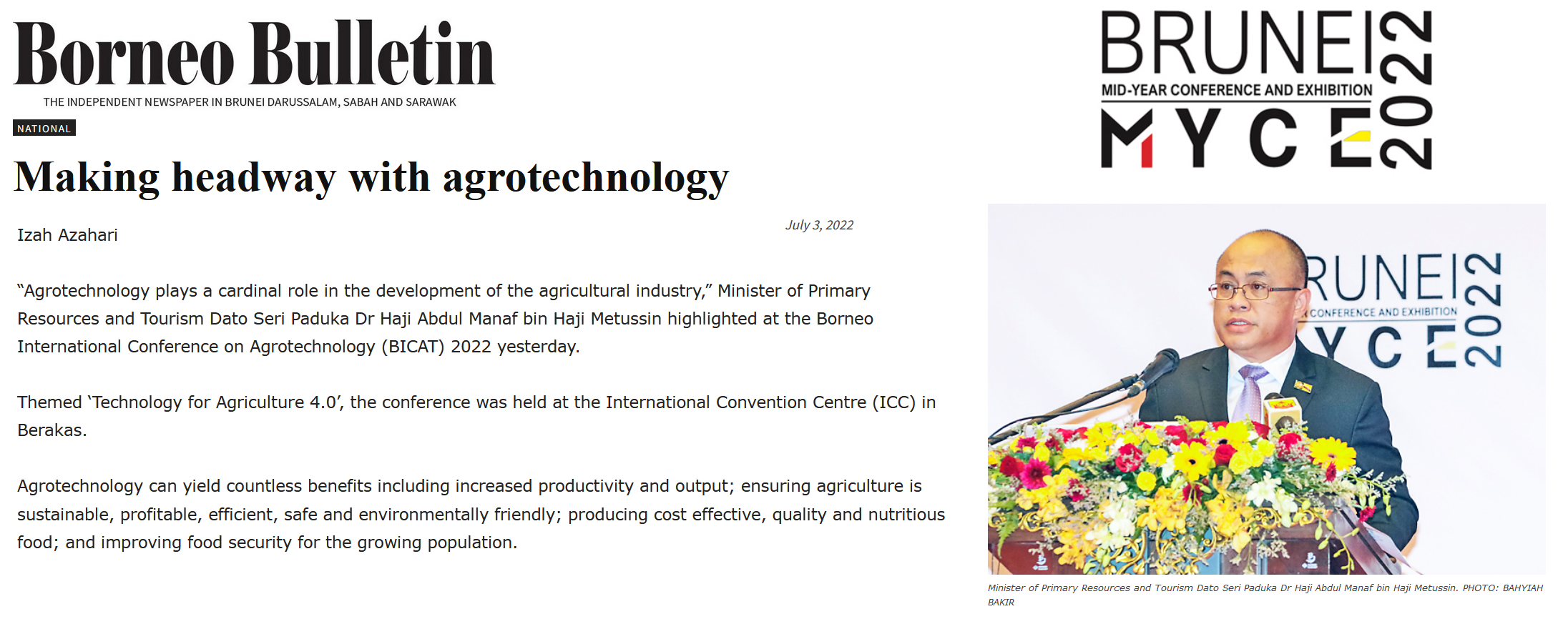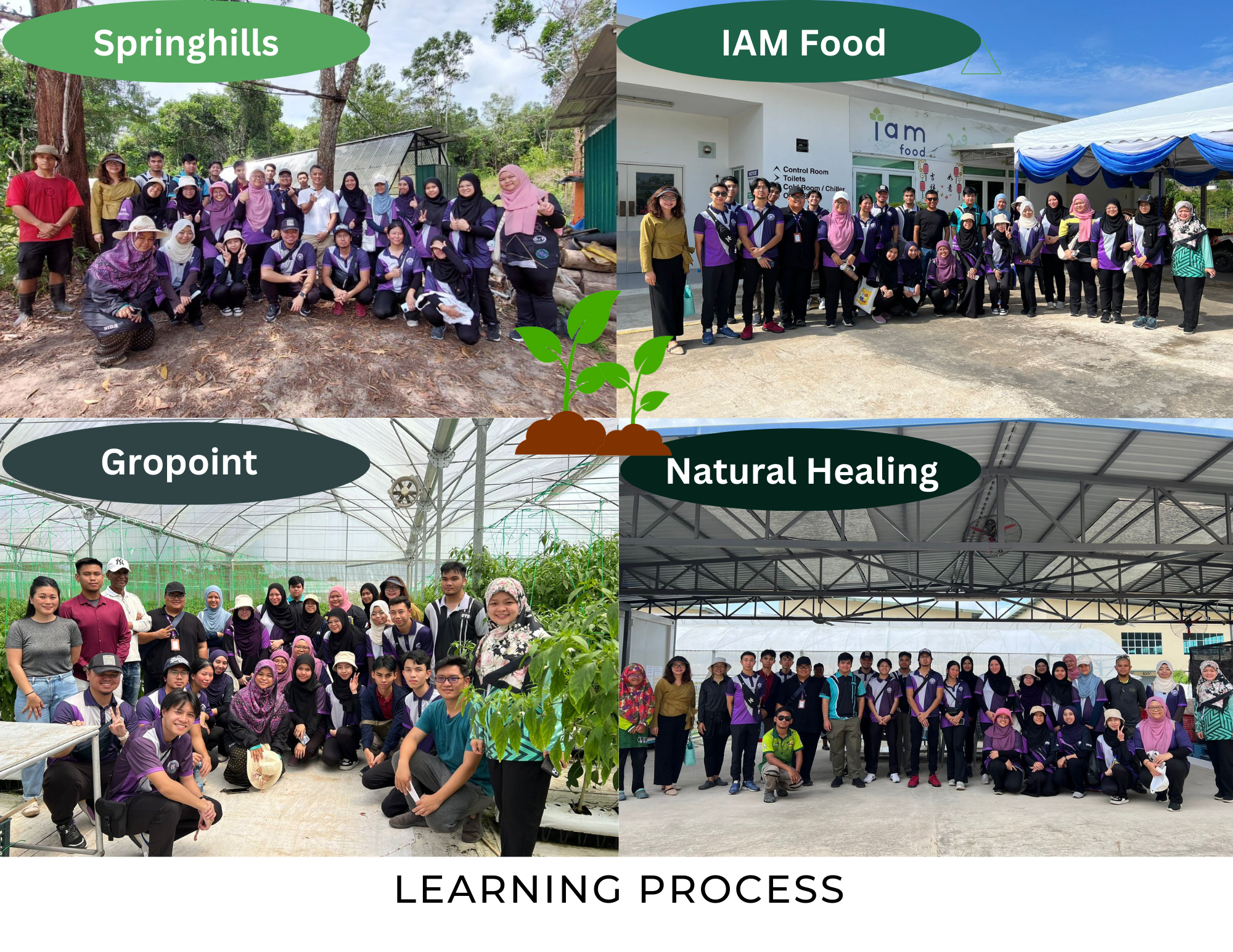(Source: Biz Brunei)
Introduction
Agricultural production has concerns in food quality and safety and the environmental impact of production methods in the short, medium and long term. The agricultural industry faces challenges and is undergoing an unprecedented period of change. Smart scientific and technological solutions are required to overcome the challenges and adopt the change for achieving sustainable and high yield agriculture production to meet the consumer demand of the rapidly growing global population.
Our Agrotechnology (Minor in Business) programme provides necessary theoretical and practical skill and knowledge in crop and animal production systems and agribusiness and marketing. The underpinning scientific, technical, and business principles and their applicability in recent local and global developments are incorporated in our curriculum. The curriculum also incorporates halal food production and quality and safety requirement for the local and global food market.
 Our programme area offers one course:
Our programme area offers one course:
The programmes prepare graduates to:
